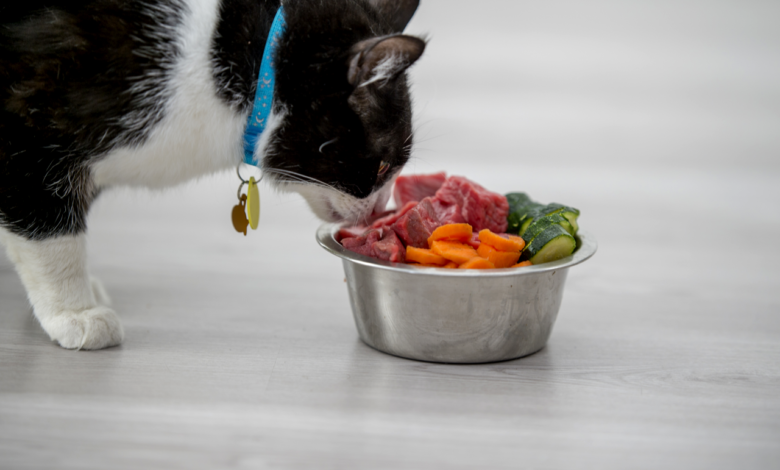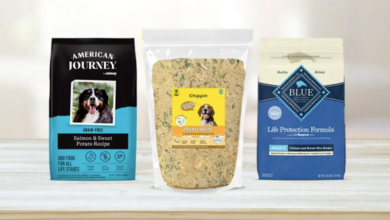
Can Cats Eat Potatoes, Carrots, and Other Vegetables?
As cat owners, we constantly strive to provide the best possible care and nutrition for our feline companions. While cats are obligate carnivores, meaning they primarily require a meat-based diet, many pet owners wonder if it’s safe to share some of our favourite vegetables with them. In this article, we’ll explore whether cats eat potatoes, carrots, and other vegetables, and what precautions should be taken when introducing these foods to their diet.
Read More: Plants That Are Toxic to Cats
Understanding a Cat’s Dietary Needs

Before we dive into specific vegetables, it’s crucial to understand a cat’s dietary needs. Cats are carnivorous animals, and their bodies are adapted to obtain essential nutrients from animal-based protein. Their natural diet consists of meat, which provides vital nutrients like taurine, arachidonic acid, and vitamin A, which are essential for their overall health.
Can Cats Eat Potatoes?
Potatoes are a popular vegetable in many households, and sometimes, our curious feline friends may show interest in them. However, cats do not need potatoes in their diet, and it’s generally best to avoid feeding them to your cat. Potatoes contain solanine, a toxic compound that can be harmful to cats if ingested in large amounts. Additionally, cats lack the necessary enzymes to break down carbohydrates efficiently, making potatoes an unnecessary and potentially harmful addition to their diet.
Carrots: A Safe Treat for Cats
Carrots are root vegetables packed with vitamins and minerals, and they can be a safe occasional treat for cats. Carrots are rich in beta-carotene, which is beneficial for eye health. If your cat enjoys the taste of carrots, you can offer them small, cooked carrot pieces as a treat. However, it’s important to remember that treats should only make up a small portion of your cat’s overall diet. Always consult with your veterinarian before introducing any new food to your cat, including treats.
The Benefits of Leafy Greens
Leafy greens, such as spinach and kale, can be a valuable addition to your cat’s diet when offered in moderation. These vegetables are packed with nutrients like vitamins A, C, and K, as well as minerals like iron and calcium. However, before feeding leafy greens to your cat, ensure they are finely chopped or pureed to prevent any choking hazards. Additionally, some cats may not enjoy the taste of leafy greens, so it’s essential to observe your pet’s preferences and consult with your vet.
Broccoli: Nutritious but with Caution

Broccoli is another nutrient-rich vegetable that can be given to cats in small amounts. It contains vitamins and minerals that contribute to overall health. However, broccoli contains isothiocyanates, which can cause gastric irritation in some cats. Therefore, it’s crucial to introduce broccoli gradually and in moderation to see how your cat responds to it. If you notice any signs of discomfort, discontinue feeding broccoli immediately.
Understanding Toxic Vegetables
While some vegetables can be given to cats as an occasional treat, others should be strictly avoided due to their toxic nature. Onions, garlic, and chives, for example, contain compounds that can lead to severe health issues in cats, including anaemia. Grapes and raisins are also toxic and can cause kidney damage. Avocados and tomatoes contain substances that are harmful to cats as well.
Read More: Complete Cat Health Guide for Every Life Stage
FAQ’s
- Can cats eat cooked potatoes? No, cats should not be given cooked potatoes or any form of potatoes, as they are not a necessary part of their diet and may contain harmful compounds.
- Are all leafy greens safe for cats? While leafy greens like spinach and kale can be safe and nutritious for cats, it’s essential to introduce them in moderation and observe your cat’s response.
- Can cats eat raw carrots? Raw carrots can be difficult for cats to digest, so it’s best to offer them small, cooked carrot pieces as a treat.
- What should I do if my cat ingests toxic vegetables accidentally? If you suspect your cat has ingested any toxic vegetables, seek immediate veterinary attention as it can be a medical emergency.
- Can cats be vegetarians? No, cats cannot be vegetarians. Their bodies are adapted to thrive on a meat-based diet, and essential nutrients found in meat cannot be replaced by plant-based foods.
Conclusion
In conclusion, while cats are obligate carnivores and primarily require a meat-based diet, certain vegetables can be offered to them as occasional treats. Carrots and leafy greens, when prepared appropriately and given in moderation, can provide some nutritional benefits. However, it’s essential to avoid feeding potatoes, onions, garlic, chives, grapes, raisins, avocados, and tomatoes to cats due to their potential toxicity. Before introducing any new food to your cat’s diet, always consult with a veterinarian to ensure it aligns with their specific dietary needs and health conditions.







